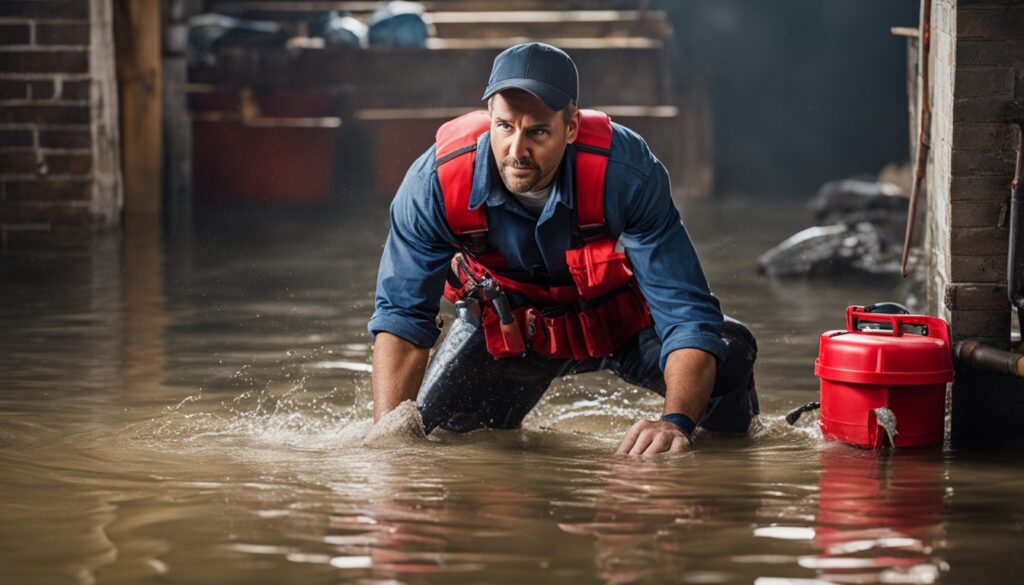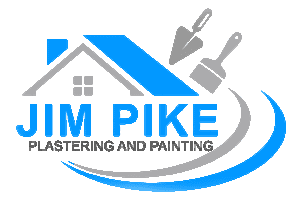Did you know that about 10% of homes in the U.S. have leaks that waste around 90 gallons of water each day? This fact shows how common plumbing issues can be. They often go unnoticed until they become bigger problems. It’s important for homeowners to know about these issues to keep their homes comfortable.
From leaking pipes to clogged drains, spotting these problems early can lead to quick fixes. This can prevent more damage and save you money.
This section will cover the main plumbing issues you might face. It will also highlight why getting professional plumbing help is key. By tackling these problems early, you can keep your plumbing in good shape. This way, you can avoid disruptions to your daily life.
Key Takeaways
- Over 10% of homes in the U.S. leak water daily.
- Common plumbing problems include leaks, clogs, and water heater failures.
- Timely intervention is crucial to prevent serious plumbing issues.
- Professional plumbing services can save you time and money.
- Regular maintenance helps in identifying potential plumbing problems early.
Understanding Common Plumbing Problems
Knowing about common plumbing problems can save you from big damage and high repair costs. Issues like dripping faucets, running toilets, and burst pipes are common for homeowners. These problems come from normal wear and tear, corrosion, and wrong installation.
Water leaks often happen because of old seals or broken parts. These leaks can cause water damage and mold if not fixed quickly. Drain issues usually come from clogs or blockages in the plumbing. Knowing these causes helps you spot problems early and fix them fast.
Research by the American Plumbing Association shows ignoring small plumbing problems can lead to big repairs. For example, a slow-draining sink might seem small, but it could mean a bigger issue. Fixing these problems quickly keeps your plumbing and home safe.
| Common Plumbing Problem | Root Causes | Consequences |
|---|---|---|
| Dripping Faucet | Worn washers, damaged seals | Increased water bills, water waste |
| Running Toilet | Flapper valve issues, float problems | Wasted water, higher utility costs |
| Water Leaks | Corroded pipes, poor installation | Water damage, mold growth |
| Drain Issues | Clogs from debris, grease buildup | Slow drainage, potential backups |
Signs You Have a Plumbing Issue
Knowing the signs of plumbing problems is key to keeping your home in good shape. If you ignore these signs, you could face bigger problems. This means more expensive repairs and wasting water. Learning these signs helps with plumbing maintenance and saves your money.
- Unexpected water bills: A sudden increase can mean hidden leaks in your plumbing.
- Strange noises: Sounds like gurgling, whistling, or banging from pipes might mean air or blockages.
- Water stains: Discoloration on walls or ceilings often shows leaks that need fixing.
- Mold growth: This can come from constant moisture, often from plumbing problems.
- Slow drains: If water is backing up or draining slowly, it could mean clogs are forming.
Spotting these signs early lets you fix problems before they get worse. Fixing small leaks now can make your plumbing last longer.
Talking to a plumbing expert can help you stay ahead of issues. Regular checks keep your home in top shape.
| Sign | Possible Issue | Action to Take |
|---|---|---|
| Unexpected water bills | Hidden leaks | Inspect for leaks or call a plumber |
| Strange noises | Blockages or air trapped | Inspect pipes or consult a professional |
| Water stains | Leaks | Investigate the source and repair |
| Mold growth | Persistent moisture from leaks | Identify origin and address promptly |
| Slow drains | Developing clogs | Clear clogs or seek professional help |
Leak Detection: Identifying the Source
Leak detection is key to keeping your plumbing in top shape. Spotting leaks early can prevent big water damage and save you money on repairs. Knowing where leaks often happen lets you fix them before they get worse.
There are several ways to find leaks effectively:
- Visual Inspections: Look for water stains or mold near fixtures and appliances.
- Listening for Sounds: Listen for dripping or hissing sounds that could mean a leak.
- Technology Utilization: Use infrared cameras to spot temperature changes that might mean a leak.
Knowing where leaks might happen helps you keep an eye on your plumbing. Pay extra attention to joints, fittings, and old pipes. By focusing on leak detection, you can stop wasting water and protect your property from damage.
Clogged Drains and Effective Drain Cleaning
Clogged drains are a common problem in many homes. It’s important to know what causes them to manage them better. Hair, grease, and foreign objects often block drains, making them less functional.
There are ways to fix these issues. You can try using a plunger or a drain snake for minor clogs. Enzymatic cleaners are also good at breaking down organic blockages. These methods are simple and can save you time and money.

For big blockages, you might need professional help. Experts use special tools to clear tough clogs. Regular plumbing maintenance helps prevent debris buildup, reducing the chance of big problems. Studies show that regular drain cleaning helps avoid major plumbing issues.
Being proactive with drain cleaning and maintenance keeps your plumbing working well. DIY solutions are helpful, but experts are key when problems get big.
Importance of Regular Plumbing Maintenance
Regular plumbing maintenance is key to a long-lasting and efficient plumbing system. It’s crucial for every homeowner to focus on preventative care. By having plumbing inspections often, you can spot problems early and avoid big repairs later.
Experts can find small leaks or buildup during regular checks, stopping them from turning into big problems. Without these inspections, small issues can grow and cause big damage. This leads to higher costs and emergency calls. Regular maintenance saves money and keeps your water flowing right and your drains clear.
Here are the benefits of regular plumbing maintenance:
- Early detection of leaks and clogs
- Improved water efficiency and performance
- Extended lifespan of plumbing systems
- Reduced risk of emergency plumbing services
Experts say homes with regular maintenance use emergency services 30% less. This approach lets you manage your plumbing better, making your home more comfortable and hassle-free.
| Frequency of Inspections | Type of Maintenance | Benefits |
|---|---|---|
| Monthly | Visual Checks | Identifies visible leaks and clogs |
| Annually | Professional Inspection | Comprehensive checks for hidden issues |
| Every 5 years | Drain Cleaning | Prevention of stubborn clogs |
Adding regular plumbing maintenance to your routine gives you peace of mind. It saves time and money, and keeps your plumbing system working well for years.
Emergency Plumber: When to Call for Help
Knowing when to call an emergency plumber can prevent big damage and save money. Many situations lead to plumbing emergencies that need quick action. It’s important to know these situations to act fast when urgent plumbing issues arise.
Severe leaks can quickly flood your home. If you see a big water leak you can’t stop, call an emergency plumber right away. Quick action is key because water can harm floors, walls, and foundations, causing bigger problems.
Overflowing toilets are another common issue. They disrupt your home and can make it unsanitary. If your toilet keeps overflowing after you try to fix it, get professional help to make it safe.
Water heater failures are also a big concern. If your water heater leaks or doesn’t give you hot water, it might lead to bigger plumbing problems. Fixing this fast can stop water damage and make sure you have hot water when you need it.
“Swift action can significantly reduce the extent of water damage in your home.” – Plumbing Expert
Being proactive helps homeowners act fast when they see urgent plumbing issues. By knowing these situations and when to call an emergency plumber, you can prevent disasters and protect your property.

| Emergency Plumbing Issue | Signs to Watch For | Recommended Action |
|---|---|---|
| Severe Leaks | Water pooling, staining on walls or ceilings | Contact an emergency plumber immediately |
| Overflowing Toilets | Constant overflow despite clogs | Turn off the water supply, call for help |
| Water Heater Failures | Leaks or no hot water | Shut off the heater, call an emergency plumber |
Your Water Heater Problems and Solutions
Water heater problems can make your home less comfortable and cause inconvenience. Issues like not having enough hot water, leaks, and strange noises are common. It’s important to know how to fix these problems quickly and effectively.
Not having enough hot water can be due to sediment buildup or a broken heating element. Keeping your water heater clean and maintained can prevent this. If you need a new water heater, choose reliable brands like Rheem or AO Smith for quality solutions.
Leaks from your water heater can come from many things, like a bad valve or corroded tank. Finding the leak early can prevent more damage and save money on repairs. If you have a leak, it’s best to call a professional plumber.
Strange noises, like popping or rumbling, mean sediment is building up at the bottom of the tank. This can make your water heater work less efficiently and cause more problems later. Flushing the tank often can stop these noises and make your water heater last longer.
Here are some steps to fix water heater issues:
- Check the thermostat settings.
- Look for leaks and corrosion.
- Flush the water heater to remove sediment.
- Listen for unusual sounds; this may signal a serious issue.
If these steps don’t fix your water heater problems, you should get help from a skilled plumbing company. Taking action early will keep your home comfortable and your hot water working right.
| Problem | Possible Causes | Recommended Solutions |
|---|---|---|
| Insufficient hot water | Sediment buildup, heating element failure | Regular maintenance, consider replacement |
| Leaks | Faulty valve, corroded tank | Identify source, consult a plumber |
| Strange noises | Sediment accumulation | Flush the tank, regular maintenance |
Residential Plumbing vs. Commercial Plumbing Issues
Understanding the differences between residential and commercial plumbing is key. Residential plumbing is for homes and deals with simpler systems for less usage. It covers everything from sinks and showers to water heaters and drains. Commercial plumbing is for businesses and needs more complex systems because of the higher demands.
Commercial systems often use stronger materials like cast iron or PVC. This is because they need to handle more pressure and usage.
Residential plumbing sees moderate use across different fixtures. But commercial plumbing faces high flow rates in places like restaurants and hotels. This means commercial plumbing wears out faster.
Knowing these differences helps avoid expensive repairs and keeps things running smoothly. It also helps you plan better maintenance to extend your plumbing’s life.
Residential and commercial plumbers have different skills. Residential plumbers do simple repairs and installations. Commercial plumbers need advanced skills for big projects.
As a property owner, knowing these differences helps you make better choices. It lets you pick the right services at the right time, whether for a home or a business.


